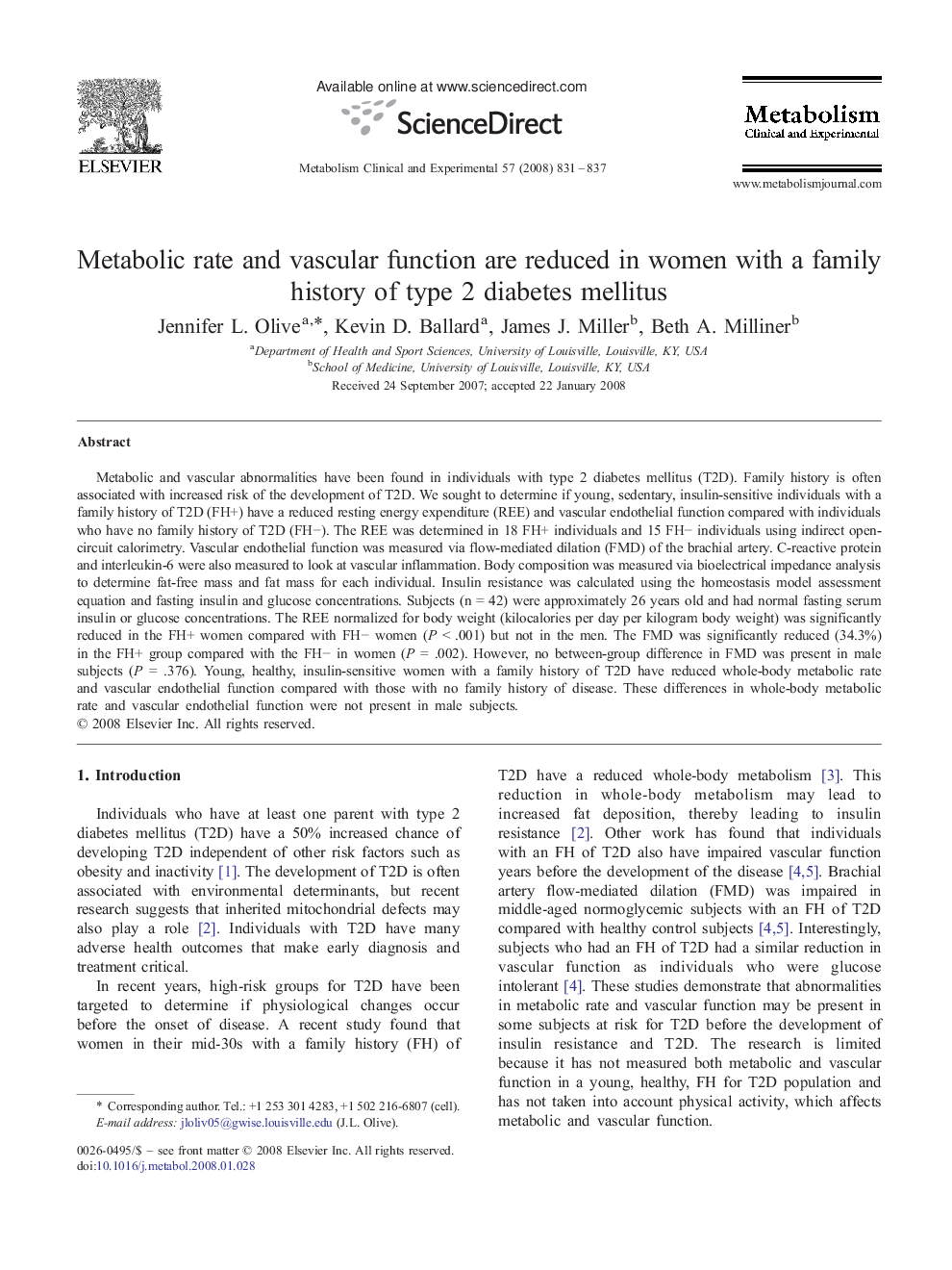| Article ID | Journal | Published Year | Pages | File Type |
|---|---|---|---|---|
| 2806271 | Metabolism | 2008 | 7 Pages |
Abstract
Metabolic and vascular abnormalities have been found in individuals with type 2 diabetes mellitus (T2D). Family history is often associated with increased risk of the development of T2D. We sought to determine if young, sedentary, insulin-sensitive individuals with a family history of T2D (FH+) have a reduced resting energy expenditure (REE) and vascular endothelial function compared with individuals who have no family history of T2D (FHâ). The REE was determined in 18 FH+ individuals and 15 FHâ individuals using indirect open-circuit calorimetry. Vascular endothelial function was measured via flow-mediated dilation (FMD) of the brachial artery. C-reactive protein and interleukin-6 were also measured to look at vascular inflammation. Body composition was measured via bioelectrical impedance analysis to determine fat-free mass and fat mass for each individual. Insulin resistance was calculated using the homeostasis model assessment equation and fasting insulin and glucose concentrations. Subjects (n = 42) were approximately 26 years old and had normal fasting serum insulin or glucose concentrations. The REE normalized for body weight (kilocalories per day per kilogram body weight) was significantly reduced in the FH+ women compared with FHâ women (P < .001) but not in the men. The FMD was significantly reduced (34.3%) in the FH+ group compared with the FHâ in women (P = .002). However, no between-group difference in FMD was present in male subjects (P = .376). Young, healthy, insulin-sensitive women with a family history of T2D have reduced whole-body metabolic rate and vascular endothelial function compared with those with no family history of disease. These differences in whole-body metabolic rate and vascular endothelial function were not present in male subjects.
Related Topics
Life Sciences
Biochemistry, Genetics and Molecular Biology
Endocrinology
Authors
Jennifer L. Olive, Kevin D. Ballard, James J. Miller, Beth A. Milliner,
